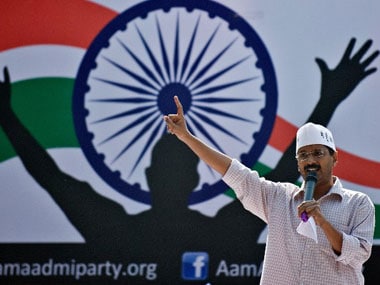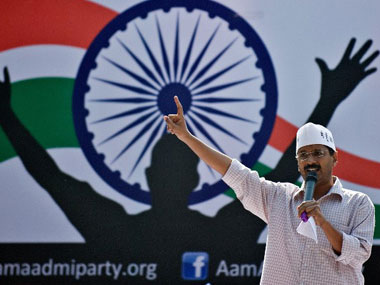The broad strokes of the Aam Aadmi party’s policy ideas have been targetted at the aam aadmi, with a special focus on electricity and water supply. In fact, Arvind Kejriwal’s civil disobedience movement earlier this year urged Delhi residents not to pay “illegal” power and water bills, promising that any legal action against them would be revoked once his party comes to power. The problem, however, is that there is no concrete plan yet on just how to solve Delhi’s “bijlee-paani” problem. [caption id=“attachment_121595” align=“alignleft” width=“380”]  Arvind Kejriwal. AFP[/caption] AAP’s survey concluded that water distribution is the main issue plaguing Delhi. Arvind Keriwal in his jansabha promised to provide 700 litres of water per day to every family. But Delhi Jal Board officials told Firstpost that they are already forecasting a loss of Rs. 22 crore after the Delhi government announced a waiver of late fee from customers. This move came after the AAP’s disobedience movement caught on. The Delhi Jal Board is yet to receive arrears of more than Rs 400 crore. Given those numbers, the AAP’s claim that it will revolutionise the system looks like a pie in the sky. R G Gupta, town planner and author of the book Planning and Development of Towns, explains how governance plays an important role in providing basic amenities. “If we look at the water situation from a policy perspective, there is no dearth of water. It is the administration that is flawed, the water tanker mafia is a recent phenomenon, not paying bills will add to the backlog,” he says. Calling the AAP’s civil disobedience a “very microscopic view”, he says there could be political gains from such a view but that it would not work on the ground. On electricity bills, Kejriwal’s standard reply is this: Electricity prices have increased by more than 150 percent since 2011. This is despite the fact that the distribution losses have come down from 50 pc to 20 pc. The government is hesitant to call for an audit of the discoms and is supporting them by ordering price rise after price rise. It is not the first time after privatisation of power distribution that Delhi government has been made to answer tough questions. In a petition filed in Delhi High court by Delhi resident Vinod Kumar Jain, the court gave a landmark judgment. The petitioner moved court against the distributor for inflated bills. The court ruled that a discrepancy beyond the error of +5.07% recorded and found at the time of inspection is beyond permissible limits. Since then Vinod jain has been encouraging people to fight the inflation battle legally. AAP proposes a quick fix solution, by ending an alleged nexus between Sheila Dikshit and corporates. Navneet Kumar, former secretary of the Delhi Urban Arts Commission, says, “Auctioning will definitely create a level playing field for other companies to enter distribution of power, a healthy competition will offer lower rates of electricity but it doesn’t guarantee a drastic decrease in the current prices. I personally do not feel the prices have increased hugely vis-a-vis the overall increase in living standards.” Citing an April 2010 draft order by former DERC chairman Brijender Singh, Kejriwal says according to his assessment power distribution companies would make a profit of Rs 3,577 crore and henceforth tariff should be reduced by 23 percent. Arvind Kkejriwal may have tried to initiate a war of words with Sheila Dikshit on the issue of increased prices of electricity and water, but political experts feel it is too soon to judge AAP’s problem solving skills. “AAP has chosen popular aam aadmi issues. Till now they have only pointed fingers at the ruling party, for political purposes this works fine, but they are yet to prove their mettle, we can only find out if they can actually work on tariffs if they come to power,” says Rumki Basu, Professor, Jamia Milia Islamia.
Too soon to judge AAP’s problem-solving skills, say experts.
Advertisement
End of Article


)

)
)
)
)
)
)
)
)



